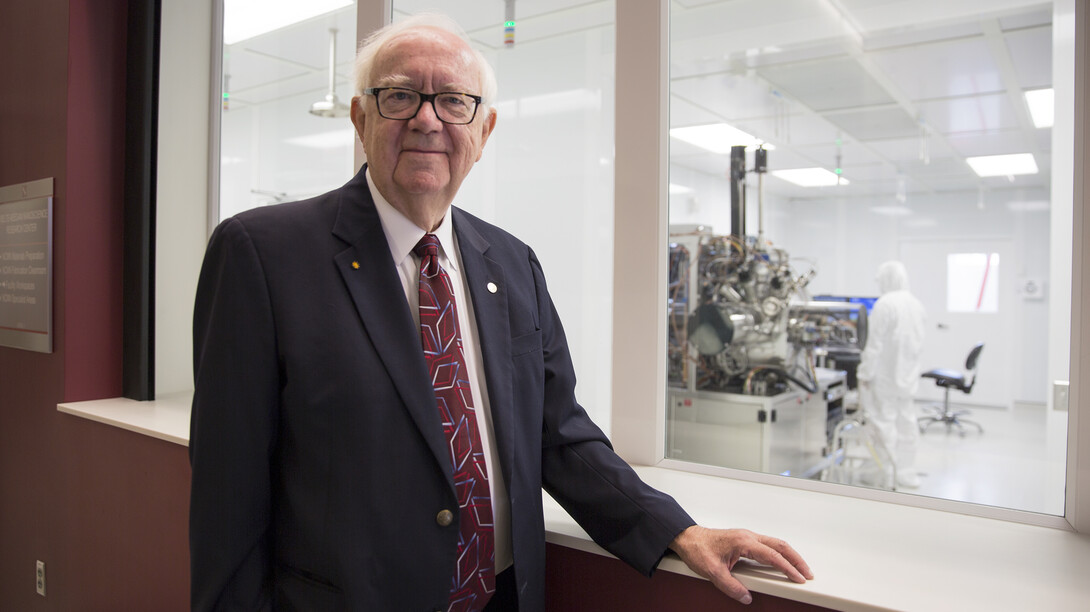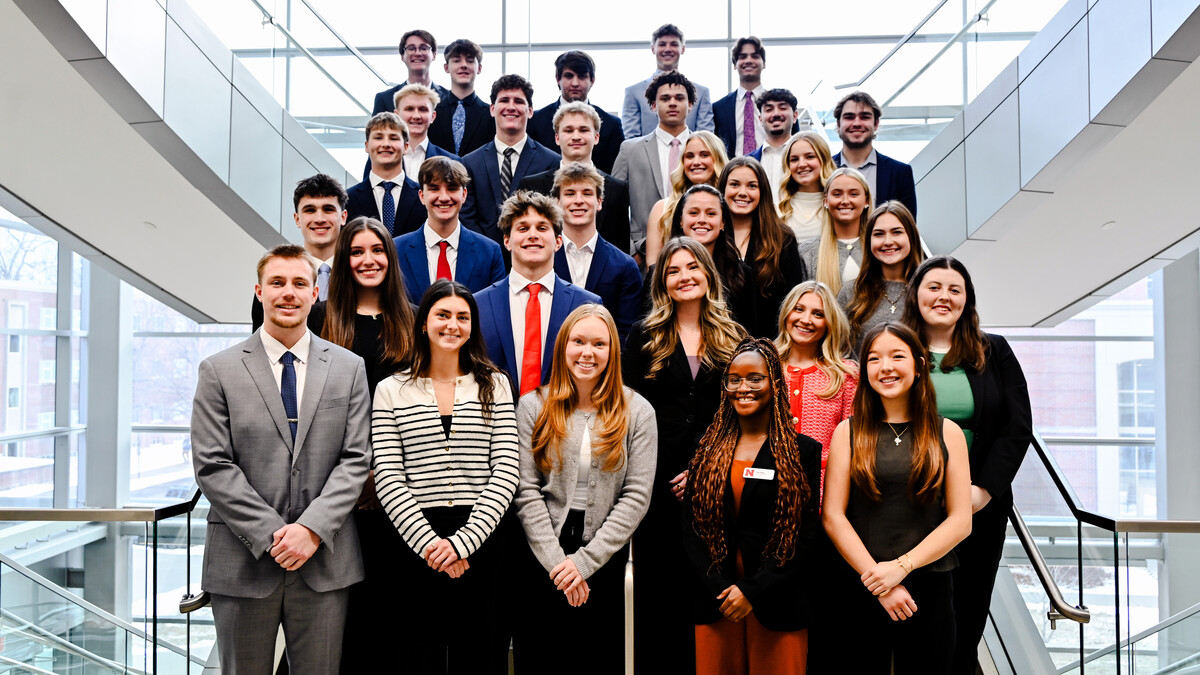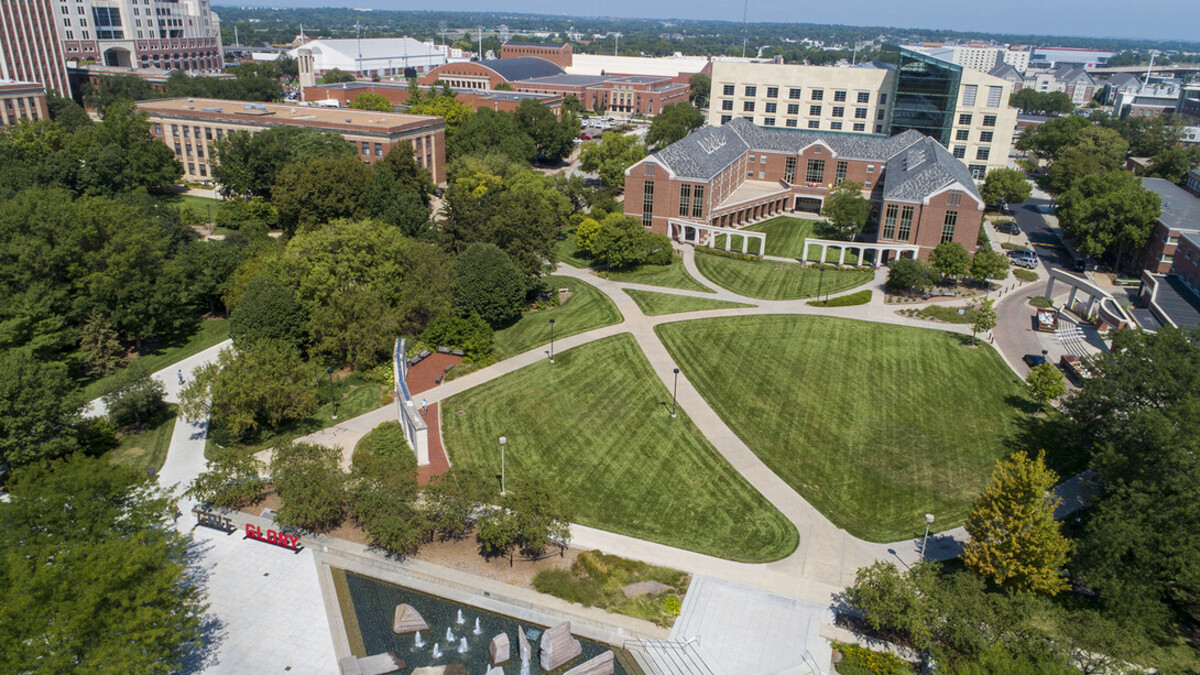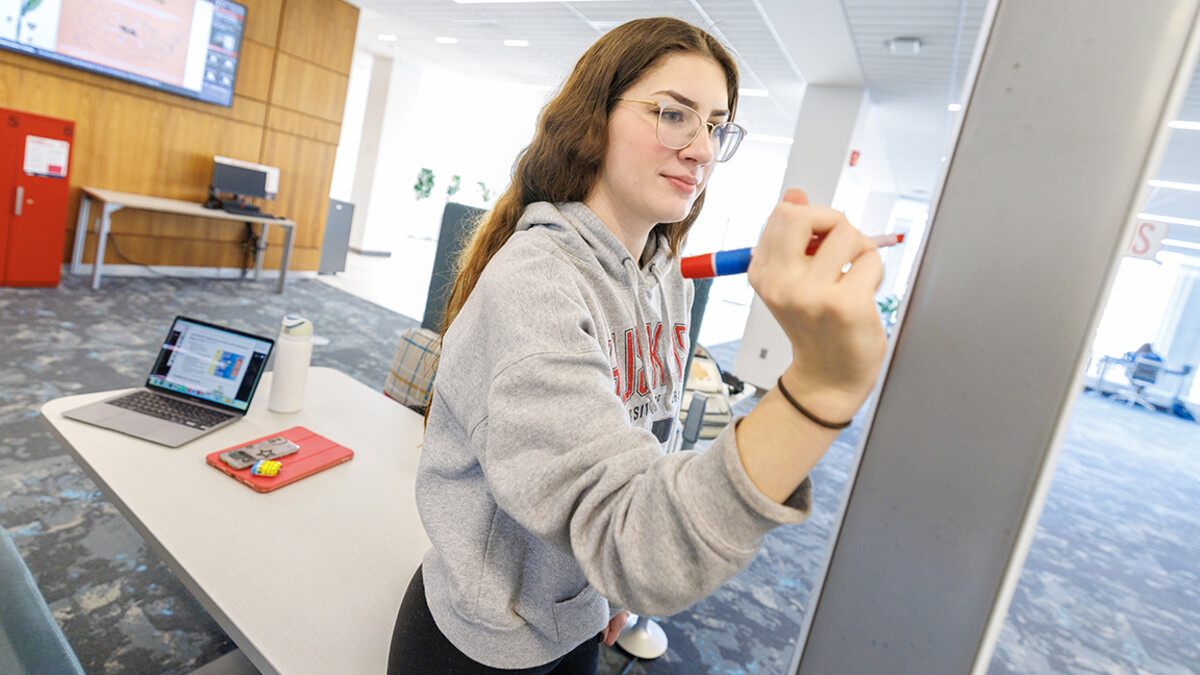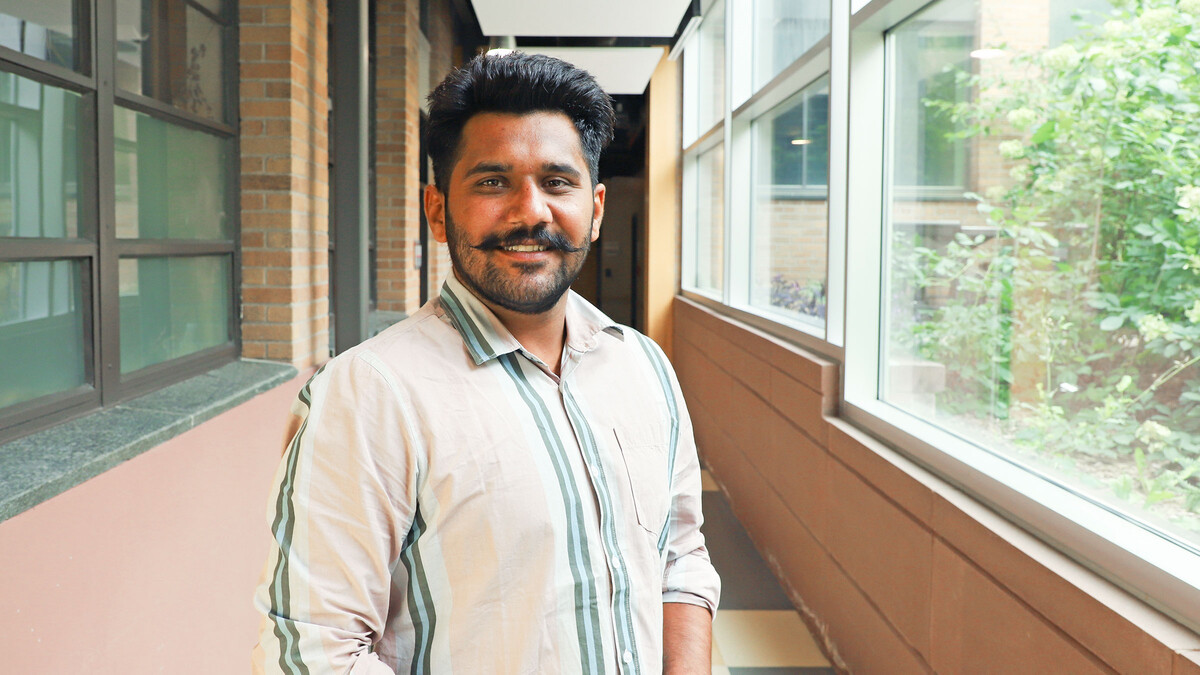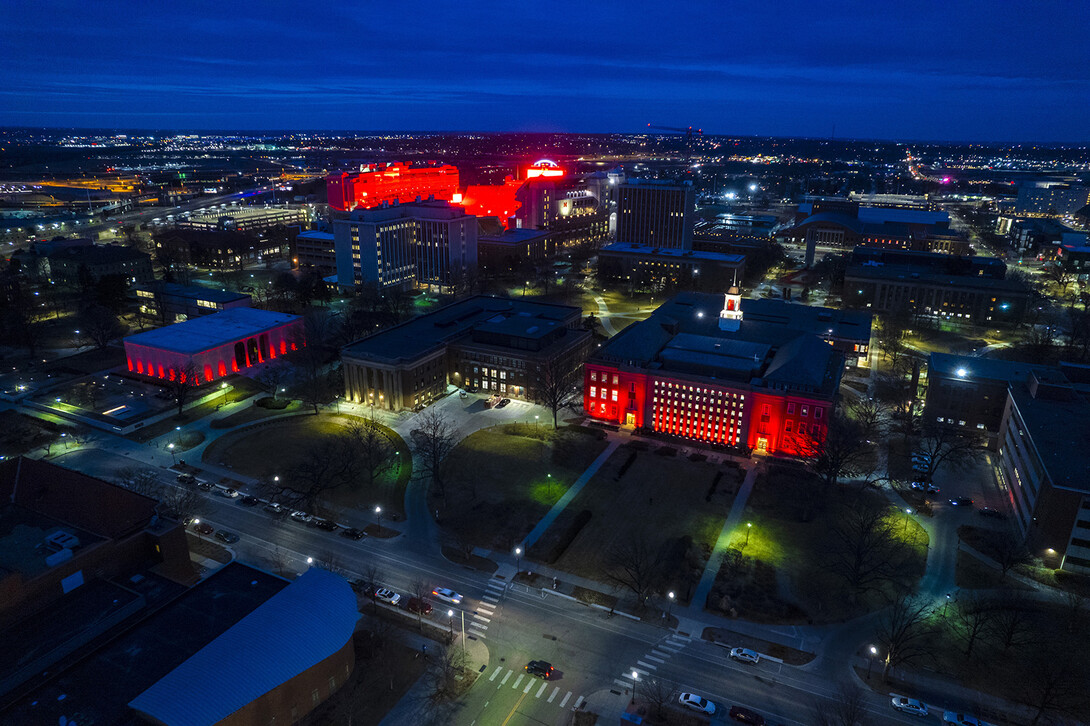
Optimism was the theme of 2022 at the University of Nebraska–Lincoln.
Having successfully navigated for two years through the global pandemic, the university returned to normal in 2022 and built momentum in teaching, learning, research and outreach. Keep reading to learn more about the university’s successes and top stories for the year.
Celebrating together
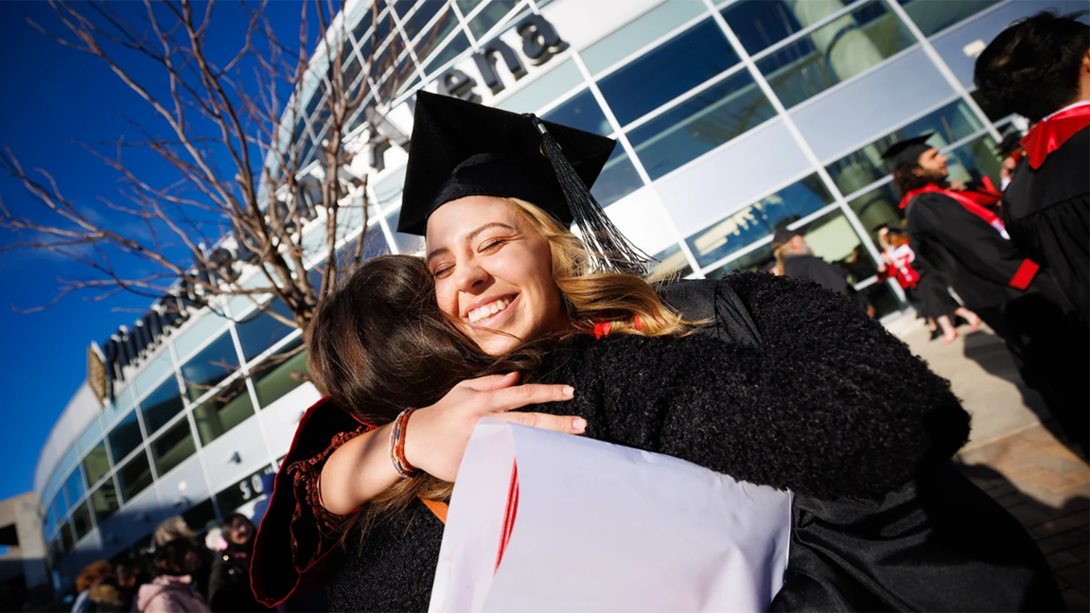
Joy and exploration were common threads in the annual review of photos captured on campus during the year. Review all of the photos of the year on the university’s Exposure page.

Marking progress
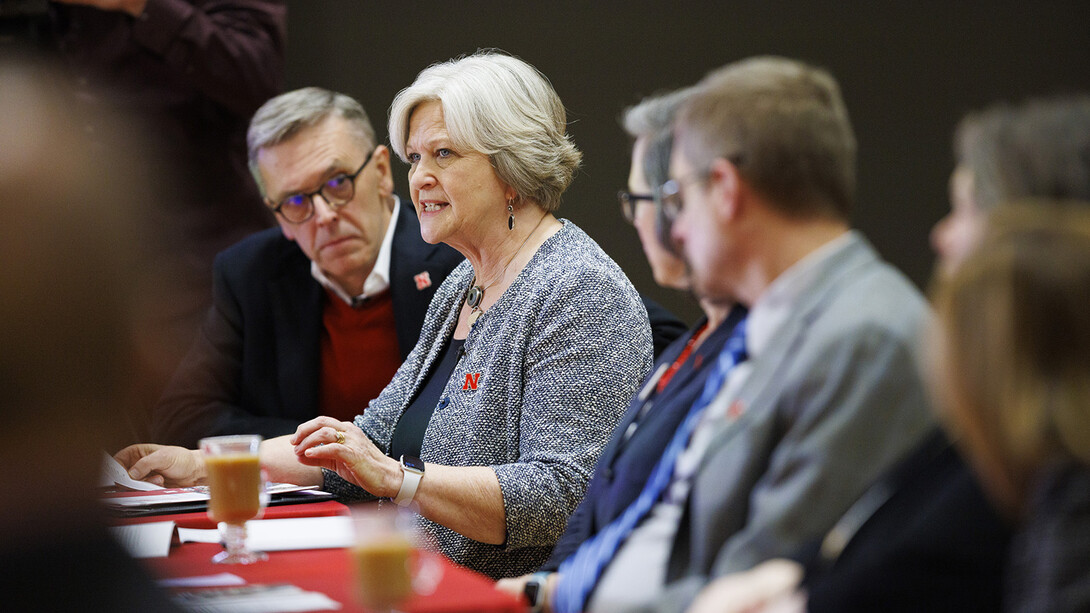
The new year ushered in a renewed focus on the N2025 Strategic Plan. Chancellor Ronnie Green announced in February a series of conversations to be held on the progress made three years into the plan, and to allow different units on campus to continue to learn from one another.
A video series was launched to help share the discussions with the entire campus community, and during his State of Our University presentation, Green hailed the work that had been done and challenged all to continue to work toward the aims set out in the plan.
As part of strategic plan, a Staff Senate was also implemented. An exploratory committee in January announced plans for listening sessions and solicited feedback. Elections for the Staff Senate began Oct. 31, with the inaugural membership announced in December.
Opportunities for students
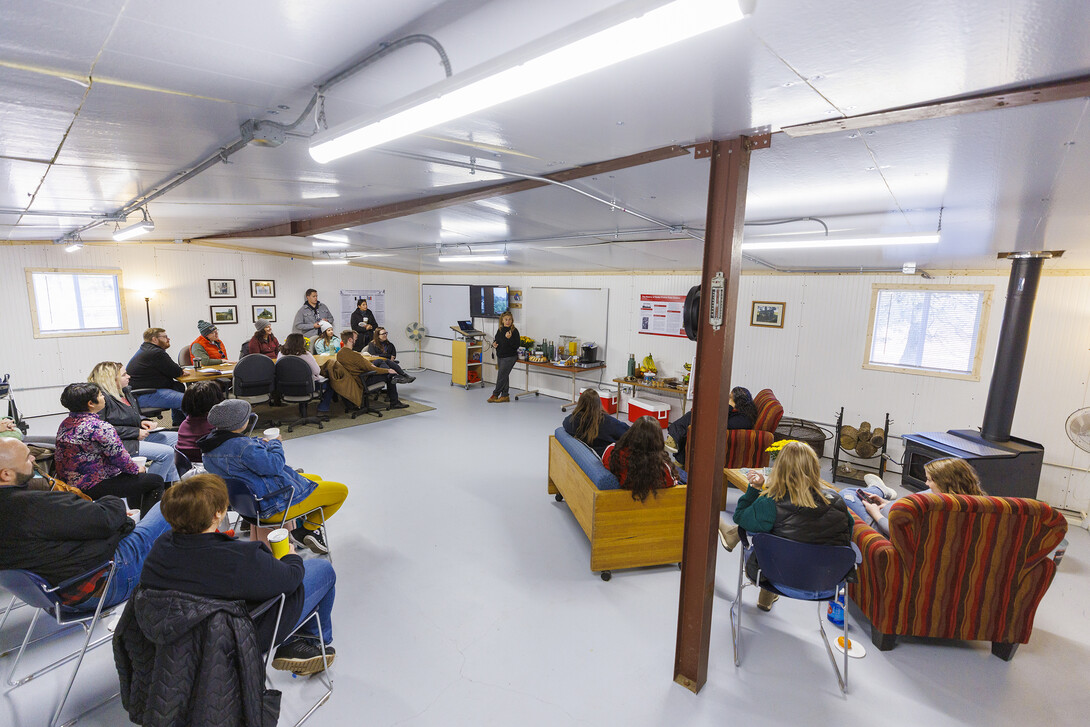
There is no place like Nebraska, and students proved it through their many successes in and out of the classroom.
Experiential learning opportunities continued to expand through growth of programs such as the Rural Fellows, the opening of the Don and Lorena Meier Studio in the College of Journalism and Mass Communication, the addition of a crime scene house for forensic science students and updates to the Reller Prairie Research Station. Some students even launched their own businesses, including Cade Ludwig and Hunter Suchsland with LS Lures, and Jackson Stansell with Sentinel Fertigation. Emerging Media Arts students interned for Disney and visual effects companies.
Students excelled on the national and international stage. In 2022, the Husker Debate team earned a national championship. Kennedi Griffis placed fourth in the national soil judging competition and went on to compete with Team USA in the international competition, where USA placed first.
Problem-solving with research
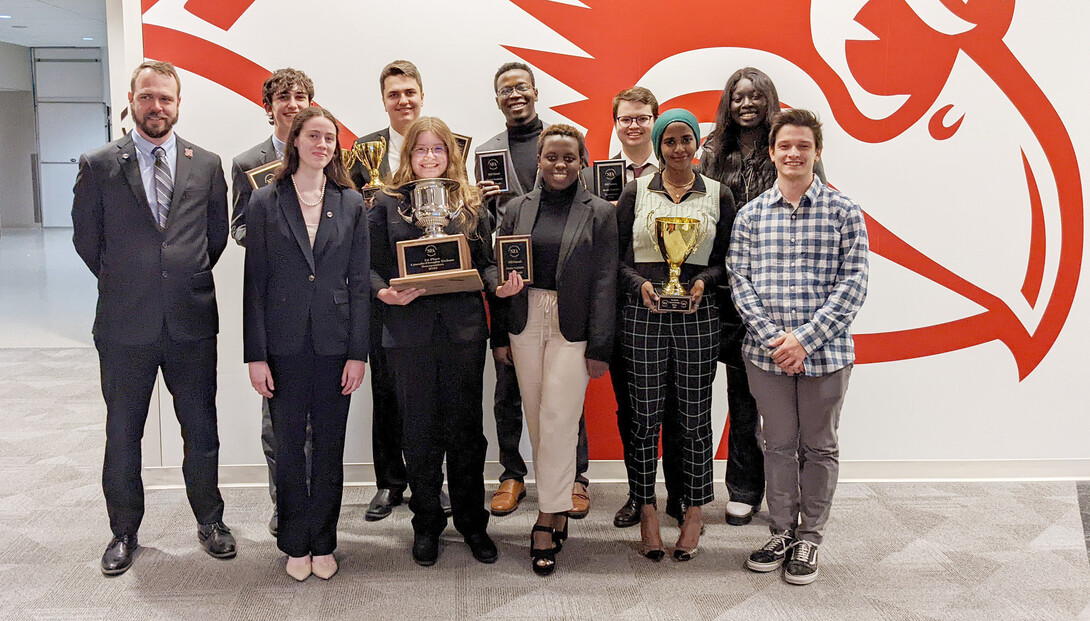
An aim of the N2025 strategic plan was to focus research, scholarship and creative activity to foster innovative endeavors that would solve challenges critical to Nebraska and the world. In August the first three Grand Challenges Catalyst Awards were announced. Katie Edwards, Thomas Helikar and Kees Uiterwaal will lead interdisciplinary teams on their projects addressing sexual violence among indigenous youth, replicating the human immune system, and exploring quantum phenomena. Grand Challenges Planning Grant awards were also given to 15 faculty for new projects.
Additionally, faculty across campus made strides in world-changing research and creative endeavors, and received new funding to do more, including:
A study from Dirac Twidwell and colleagues that identified only seven large, intact grassland regions in the world, a fact that has consequences for the Earth’s ecosystem. The study also established the Nebraska Sandhills as the largest grassland in the world.
A team including Christian Binek uncovered a possible way to curb energy used by digital memory by 5% through a new “spin” on transistors within microchips.
Will Gearty, Kate Lyons and a four-continent team found that extinctions of the largest herbivores and carnivores are disrupting what appears to be a fundamental feature of past and present ecosystems.
With a five-year, $12.8 million grant, Edgar Cahoon will lead an interdisciplinary team in exploring how camelina and pennycress, which contain the fatty acids necessary for producing biofuels and biomaterials, could help replace petroleum-based products and mitigate the effects of climate change.
A new project launched by the National Drought Mitigation Center, and funded by U.S Air Force Weather, will develop a global drought indicator with an aim of predicting unrest in regions of the world.
A $25 million dollar federal award will establish the Heartland Robotics Cluster, which includes $9.3 million to build out robotics-related research and teaching spaces in Kiewit Hall, Scott Engineering Center and Splinter Labs. Additional allocations will utilize resources at Nebraska Innovation Studio and The Combine, both located at Nebraska Innovation Campus. And, the Nebraska Manufacturing Extension Partnership, part of the university’s Institute of Agriculture and Natural Resources, will use $1.4 million to develop an automation demonstration space and program for Nebraska manufacturers.
Kwame Dawes and Lorna Dawes will lead an international team to expand an online portal for African poetry, with funding from the Andrew W. Mellon Foundation.
Faculty recognition
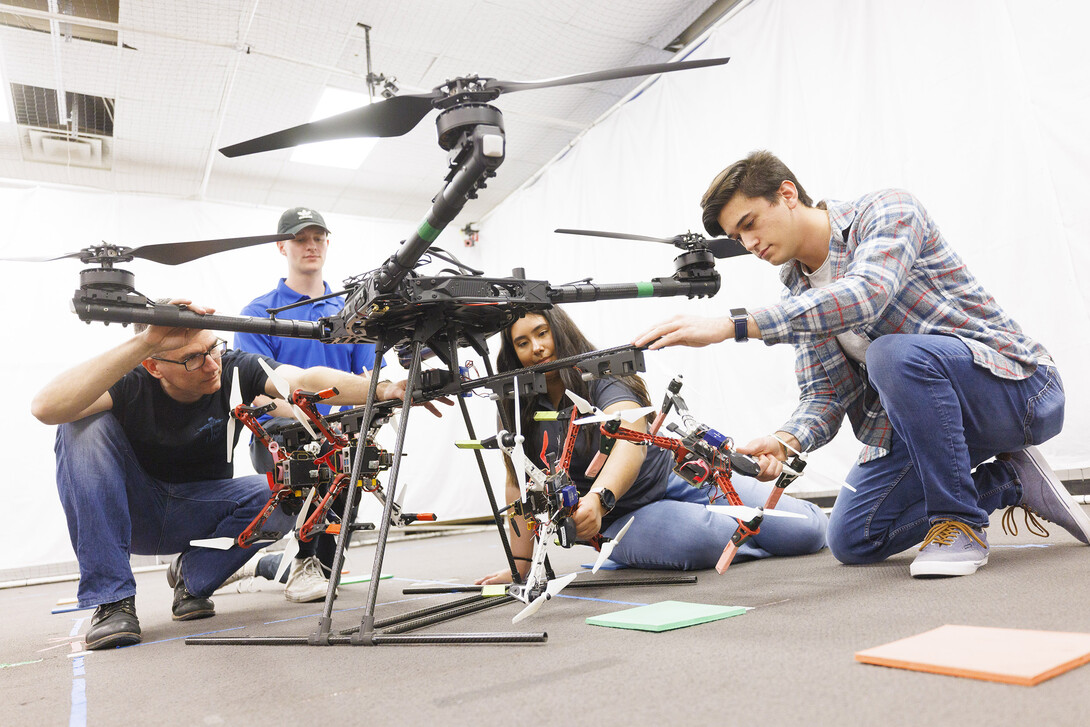
Faculty gained momentum and did big things during 2022. In his State of Our University address, Green lauded a record high of $321 million in total research expenditures.
Additionally, faculty were recognized by leading national organizations. Seven faculty earned Early Career Awards from the National Science Foundation: Joseph Yesselman, Katarzyna Glowacka, Wei Bao, Rugio Yang, Jae Sung Park, Kathryn Holland and Nicole Iverson.
Julia McQuillan and Judy Walker were named fellows of the American Association for the Advancement of Science, and two faculty were recognized by the National Academy of Inventors, with Carl Nelson being elected as a senior member and Ronald Faller being named a fellow. Matthias Fuchs was selected as one of 39 Kavli Fellows by the National Academy of Sciences.
Changing face of campus
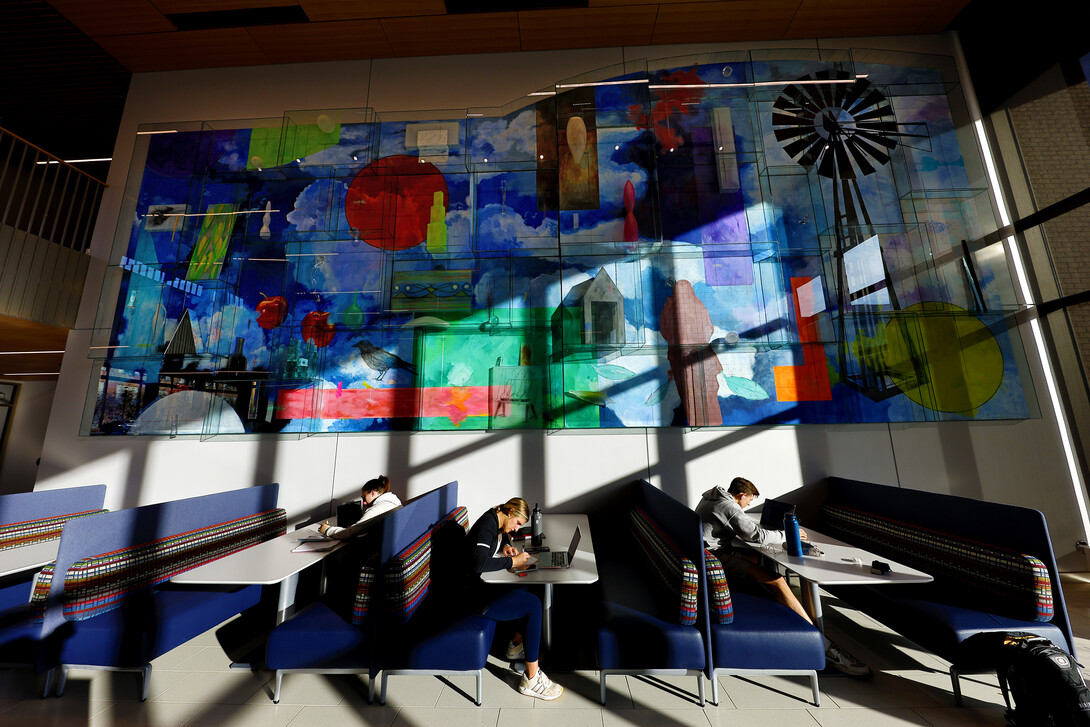
Orange cones and construction fencing was a common sight across campus. Love Library’s iconic cupola underwent a major facelift, beginning in May. The project was finished in August. Construction finished on the new home of the College of Education and Human Sciences, Carolyn Pope Edwards Hall, and welcomed students and faculty for the fall semester. And in honor of the many veterans who’ve walked the campus, the university dedicated its new Veterans Tribute in September.
Additional projects, including the College of Engineering’s Kiewit Hall, continued during the busy year of campus improvement, and more can be expected in 2023 work beginning on the new Westbrook Music Building in December. When finished, the green space near the new building will include the historic and iconic “kissing columns,” which had been placed in storage when ground was broken for the new football facility near Memorial Stadium.
Campus leadership also welcomed new faces. In January, Katherine Ankerson, former dean of the College of Architecture, was tapped as the executive vice chancellor for academic affairs. Andy Belser was named dean of the Hixson-Lied College of Performing Arts in March, and Kevin Van Den Wymelenberg was selected in October to lead the College of Architecture.
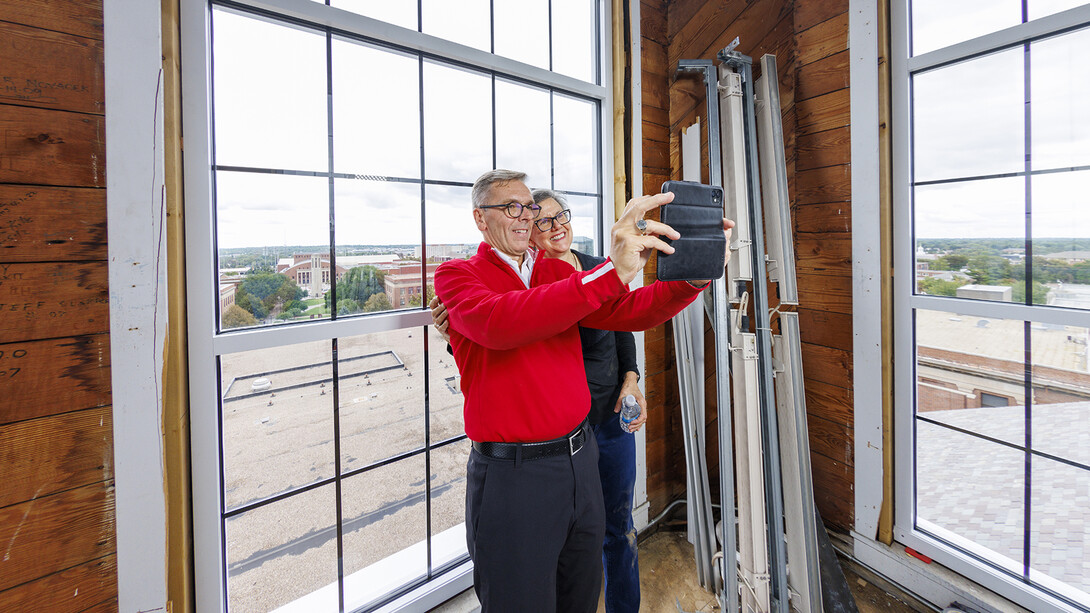
And, the year closed with another set of leadership changes as, in December, Mike Zeleny was named vice chancellor for business and finance, and Chancellor Green announced he would retire in 2023.
In memoriam
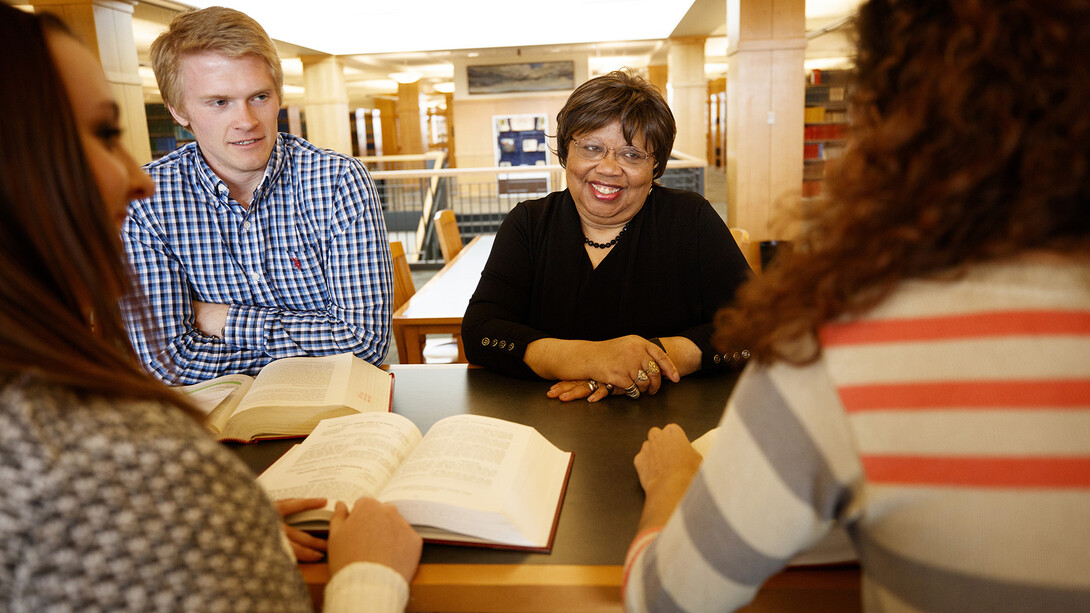
Two long-time professors and leaders died in 2022. Anna Shavers, professor and associate dean for diversity and inclusion in the College of Law died in January. David Sellmyer, director of the Nebraska Center for Materials and Nanoscience and professor of physics and astronomy, died March 25.
Campus also said goodbye to professors emerita, retired staff and longtime supporters of various campus endeavors.
